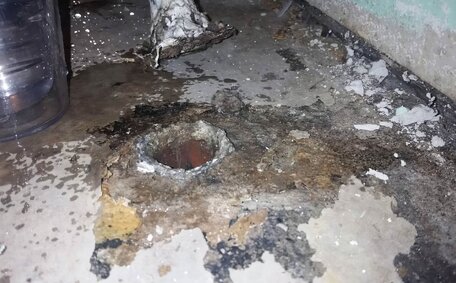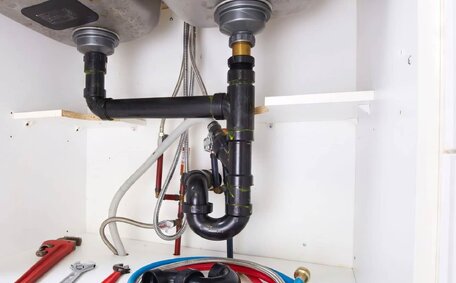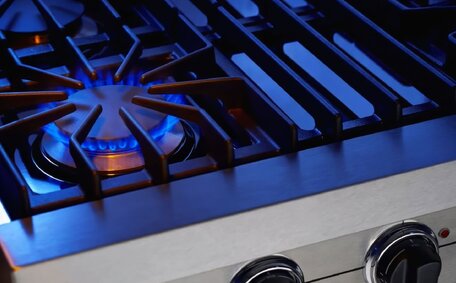Introduction to Pipe Relining Certifications
Ensuring a pipe relining company holds the necessary certifications is crucial for quality and safety.
Pipe relining is a sophisticated method that rehabilitates pipes by placing a resin-soaked liner within the existing plumbing, all done with minimal disruption to the surrounding area.
Certifications from respected entities like NSF International and ASTM International are critical for pipe relining companies, especially in regions like the Gold Coast and Sydney.
Certifications ensure that pipe relining meets high standards for infrastructure longevity, surpassing traditional repairs. NSF certifies suitable materials, while ASTM sets comprehensive industry regulations.
Regular audits, CCTV inspections, and resin tests ensure compliance and operational efficiency. Certified companies guarantee stronger CIPP liners, resilient to high pressures, safeguarding your property with no digging required.
Technicians are also certified by NSF and ASTM, highlighting their expertise in executing trenchless relining safely and proficiently. Certifications offer homeowners certainty that technicians are skilled in addressing pipe damage and delivering durable upgrades.
Key Industry Certifications for Pipe Relining
There are several key industry certifications that pipe relining companies should have to ensure they meet rigorous safety and quality standards:
NSF International
NSF International provides standards and certifications specifically for cured-in-place pipe (CIPP) relining products and materials. Two major NSF certifications for CIPP manufacturers are:
- NSF/ANSI Standard 61: Certifies cost effective products that make point contact with drinking water meet health safety criteria.
- NSF Protocol P151: Ensures pipe relining products meet performance standards when installed.
NSF conducts regular factory inspections to ensure Sydney-based pipe relining companies maintain compliance.
ASTM International
ASTM International defines the testing procedures and performance criteria for the entire pipe relining industry, including those used in drains reline projects. Common ASTM certifications include:
- ASTM F1216: Practise for rehabilitation of pipelines by the inversion and curing of a resin-impregnated tube.
- ASTM F1743: Practise for rehabilitation of pipelines by pulled-in-place installation of cured-in-place epoxy resin pipe (CIPP).
- ASTM F2019: Practice for rehabilitation of existing pipes sewer and conduits by the pulled in place installation of glass reinforced plastic (GRP) cured-in-place thermosetting resin pipe (CIPP).
Certified relining firms undergo frequent external audits, adhering to ASTM quality controls to deliver enduring sewer line solutions.
By selecting a certified relining firm endorsed by NSF and ASTM, our customers receive reassurance that their compromised pipe concerns can be tackled and rectified securely; once the technicians have their work completed, they leave the site tidy, having delivered a reliable, industry-leading service.
NSF International Standards and Testing
NSF International, established in 1950, is committed to endorsing no-dig solutions and certifying materials that meet rigorous health and safety standards, including those used in pipe relining.
Specifically for the pipe relining industry, NSF has carried out two critical standards and testing procedures:
- NSF/ANSI Standard 61: Certifies pipe relining products comply with health effects requirements when installed in potable water systems.
- NSF Protocol P151: Ensures cured-in-place pipe (CIPP) products meet minimum structural, testing and performance requirements.
NSF 61 certification demands rigorous toxin screening for safely using materials in contact with drinking water, while Protocol P151 examines pipe integrity and composition, ensuring performance standards are met.
Manufacturers engaged in Sydney relining must submit to biannual NSF facility audits to uphold quality and testing standards. Stringent certifications enable companies to ensure their pipe relining processes mete out industry-leading safety and performance benchmarks.
Additionally, products are retested multiple times per year to ensure they remain compliant as formulations evolve.
ASTM International Standards and Testing
ASTM International, founded in 1898, sets critical technical standards for a range of products and services, including vital protocols and safety criteria for the pipe relining industry.
There are several key ASTM standards relating to pipe relining:
- ASTM F1216: Covers rehabilitation of pipelines by inversion and curing of a resin-impregnated tube.
- ASTM F1743: Addresses pulled-in-place installation of cured-in-place thermosetting resin, transformed into pipe lining (CIPP).
- ASTM F2019: Details pulled-in-place installation of glass reinforced plastic (GRP) CIPP liners.
For ASTM certification, relining companies must pass detailed audits and tests to confirm adherence to standards, verifying the quality of CIPP products for residential and commercial stormwater systems.
- Short-term flexural modulus and strength
- Long-term (creep rupture) strength
- Chemical resistance
- Hydraulic capacity
Adherence to stringent ASTM standards allows companies to offer cost-effective solutions, with CIPP liners designed to enhance flow and function reliably in various temperature conditions. Clients additionally get third-party affirmation, services that match exacting quality and safety criteria, leaving them happy their standards are met.
The Importance of Continuous Compliance Testing
Regular compliance testing is imperative for CIPP producers to ensure their liners are durable and up to date with industry standards, especially against common hazards like tree roots.
Certifying organisations such as NSF and ASTM annually update their benchmarks, progressively raising standards. For example, NSF/ANSI 61 has adopted over 1,500 changes in the past decade. Insufficient product testing leading to non-compliance can cause pipe liners to fail under stress from tree roots, temperature changes, or contamination.
With 30% of uncertified CIPP products failing to meet current standards, the risk of premature failure and consequential public safety issues like water contamination and sinkholes is significant.
Regular adherence to NSF 61 and ASTM standards ensures that reliable relining services can guarantee long-lasting liners, while ongoing testing fosters innovation in products and installation methods.
How Certifications Impact Pipe Relining Reliability and Safety
Certifications from organisations such as NSF International and ASTM International are paramount for the reliability and safety of new pipe relining installations.
Certified technicians use materials and methods that adhere to strict standards, ensuring your sewer line is effectively rehabilitated with liners designed to last over 50 years.
The use of non-certified materials increases the risk of liner failure that may lead to emergencies and safety hazards. With a 30% failure rate in non-certified liners, their reliability is questionable.
Certifications not only assess material quality but also affirm the training and skill of technicians who provide proficient pipe relining installations, ensuring your pipes are expertly restored.
Certifications provide third-party assurance of a company’s capabilities, offering reliable pipe relining solutions that align with your budget and timeframe, thus guaranteeing long-lasting pipe performance.
Questions to Ask About a Company’s Certifications
When evaluating pipe relining companies, asking pertinent questions is crucial to validate their qualifications and commitment to safety.
Certifying Organisations
- Are your pipe relining products and resins certified by NSF International to ensure pvc pipe materials meet NSF/ANSI Standard 61 and Protocol P151?
- Is your company certified by ASTM International to follow standards like ASTM F1216, ASTM F1743 or ASTM F2019?
Testing and Audits
- How often do you test cured-in-place pipe (CIPP) materials to ensure they continuously meet the latest industry standards?
- When did your manufacturing facilities last undergo third-party auditing to verify compliance with quality controls and procedures?
Installer Certification
- Are your pipe relining technicians certified or trained through the National Association of Pipe Lining Contractors (NAPLC) programme?
- Can you provide documentation of completed training and competency assessments?
Researching a company’s certifications is a necessary step to confirm their proficiency and ensure dependable relining services. Professional contractors will offer documentation, a free quote, and answer any queries.






